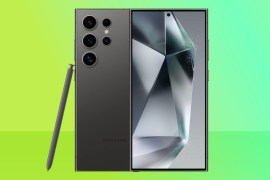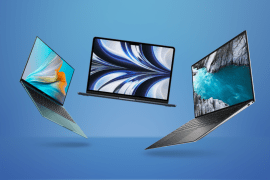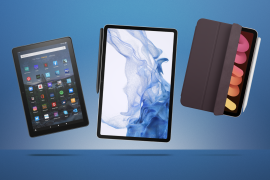Samsung Q1 Ultra review
The original Q1 was a dog’s dinner of a keyboardless UMPC. But with full QWERTY powers, can the Ultra make up for its predecessor's mistakes?
Our Korean isn’t great but, judging by the new Q1 UMPC, ‘ultra’ must translate to something like ‘keyboard’ in Samsung’s native tongue.
The big new addition to the disappointing original is split either side of the Ultra’s seven inch screen, and is designed more with thumbs than fingers in mind. This makes it a much more appealing machine than its predecessor, but we can’t help thinking it’s getting away from the original concept, which was a keyboardless computer driven by touch-screen display. There’s still a touch-screen display at the centre of things, but it now feels less radical.
Slow riser
The Q1 Ultra is powered by Intel’s mobile computing friendly A110 processor, and other headline features include 1GB of memory and an impressive 60GB hard drive, which should be enough for most people’s needs.
Samsung has decreed that the Ultra runs Vista Home Premium edition, which is fine and dandy, although start up time is a little bit longer than we’d have expected, especially as this is a PC that you’ll be using ‘on-the-fly’.
Still, in action the Ultra proves itself more than worthy of our attention, and is as responsive a UMPC as we’ve had the pleasure to hold hands with. It provides quick access to on-board programs and doesn’t leave you hanging too often.
Bright and breezy
The screen is brighter and clear too, and you can even use it to watch movies on the move without it being overly annoying. The touch control element also works well, although with the addition of the keyboard we find ourselves using this less than on the original Q1.
Elsewhere, in terms of weight and usability this is an impressive piece of kit, and our final gripe is on battery life, which gave up the ghost after three hours. That would be okay, but it’s not the kind of device you are likely to use plugged in – that’s what your desktop’s for. So, while the Q1 Ultra is a vast improvement on its predecessor, it still suffers from a confused identity.



